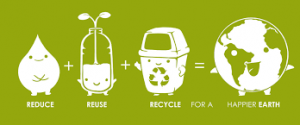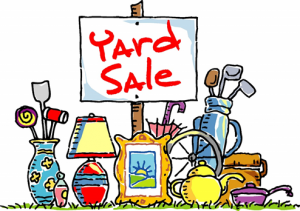
The best place to start making a difference is right in your own home. Learn how you can reduce, reuse, and recycle materials to decrease household waste. The tips below will help you get started.
LAWN & GARDEN
- Learn to compost at home. Use food scraps, yard trimmings, and other organic wastes to create a compost pile. Adding the compost you make to soil increases water retention, decreases erosion, and keeps organic materials out of landfills.
- Raise the cutting height of your lawnmower during hot summer months to keep grass roots shaded and cooler, reducing weed growth, browning, and the need for watering.
- If you need large lawn and garden equipment such as tillers and chainsaws, you can reduce waste (and save money) by setting up a sharing program with your neighbors.
- When you mow, “grasscycle” by leaving grass clippings on your lawn instead of bagging then. The clippings will return nutrients to the soil instead of taking up space in landfills.
- Donate healthy plants that you want to replace to community gardens, parks and schools.
- If you have a wood burning fireplace, save your ashes instead of throwing them away. Once cooled, wood ashes can be mixed into your compost heap and provide nutrients to your garden.
HOME IMPROVEMENT
- Use insulation made from recycled paper, glass, and other recovered materials.
- Clean and properly store tools, toys and outdoor furniture to protect them from damage and keep them out of landfills.
- Turn off or unplug lights during the day. Doing so will save energy and help your lights last longer.
- Storms can cause power outages. Prevent waste by keeping rechargeable batteries for your flashlights. If you do use disposable batteries, reduce hazardous waste by buying ones with low mercury content.
MOVING & CLEANING
- Have a yard sale to find homes for clothes, toys, appliances, and books that you no longer
 need.
need. - When moving, use old newspapers to wrap fragile materials.
- Use moving boxes with the highest content of recycled paper and bubble wrap containing recycled plastic. Be sure to recycle packaging materials after your move. Many organizations, such as U-Haul, have places where you can drop of unused boxes for others to reuse.
- Be sure to properly dispose of any non-recyclable items that you won’t be taking with you. Look for household hazardous waste collection days in your community to properly dispose of cleaners, paints, automotive supplies and other hazardous items.
- For cleaning chores, buy reusable mops, rags and sponges. When using cleaning products, use only the amount you need and follow the bottle’s directions for use and disposal.


